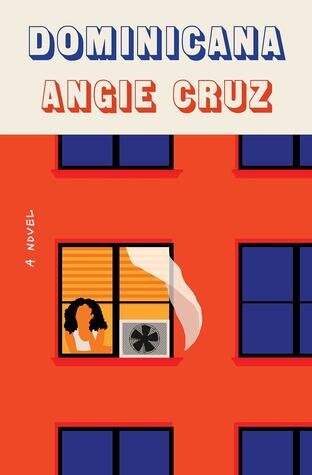When Maria Rosario begins commuting to a private high school on the upper east side of Manhattan, she is befriended by Rocky, a girl who doesn’t think twice about paying for Maria’s meals and even buys her a plane ticket. Maria is enamored with her new, wealthy friend, but she’s also worried Rocky will look down on because she lives in Queens. She doesn’t want to have to explain to Rocky why the hot water in the bathroom always runs cold or why they don’t have cable TV. Meanwhile, Rocky is equally jealous of Maria’s supportive family. The way Rocky sees it, Maria is loved and needed, while her own parents’ marital troubles prevent them from paying attention to their children. As the two girls become closer, their families get tangled together in messy and complicated ways. The structure of the novel is fascinating and works perfectly, the perspective shifting even within chapters from Maria to Rocky to each of their fathers. My favorite passage from the book is from a moment when Maria contemplates her home borough.
“Sometimes, when Maria walked down Queens Boulevard, she felt as if she were in front of an ocean. Twelve lanes wide and spanning far into the horizon, it provoked a similar sense of awe. In those rare moments when she had it to herself, when the sun had gone down and even the cars were sporadic, fleeting like flies, Maria was overcome with emotion. She felt so deeply her full humanity then. Some people had backyards, other people mountaintops, but Maria had Queens Boulevard to help her appreciate the ample beauty of existence.”
An insightful coming of age story, this vibrant debut offers so much more—a cautionary tale of the haves and have nots, an examination of wealth and whether that truly brings happiness, a dissection of loneliness and jealousy, and so much more. Stephanie Jimenez is an exciting new writer to watch.

Thank you. to Flatiron Books for placing this wonderful book in my hands. This evocative story opens in the Dominican Republic in 1965. Fifteen-year-old Ana Canción is living with her parents and multiple siblings and cousins. She has a crush on her friend, Gabriel, often fantasizing about the kind of life they will have together when they are older. But when Juan Ruiz, a man more than two decades older than her, proposes and offers to take Ana to New York, Ana know she must accept for the sake of her family’s future.
Living in a small apartment in Washington Heights, Ana’s life becomes all about cooking, cleaning and sending money home to her family. She doesn’t love Juan, but she tries to give him the benefit of the doubt, even when his verbal abuse becomes physical. Her quick pregnancy is tinged with sadness and a looming sense of captivity, but the one light in her dark life is Juan’s brother, César. The more time Ana spends with him, the deeper her desire for his lithe, muscular body, his smooth dark skin and his thick curly hair. When Juan travels back to the Dominican Republic for two months to join the rebellion, Ana is free to spend time with César, but when Juan returns, Ana is forced to make a choice between the man she truly loves and her familial duty.
Cruz did a wonderful job using detail to bring the reader deep into the heart of the story. The luscious food descriptions, sounds of the city, and honest descriptions of Ana’s inner thoughts and feelings all make Ana’s story realistic and identifiable. Ana’s story is beautifully ordinary, likely playing out in similar ways in every corner of our country every day.
